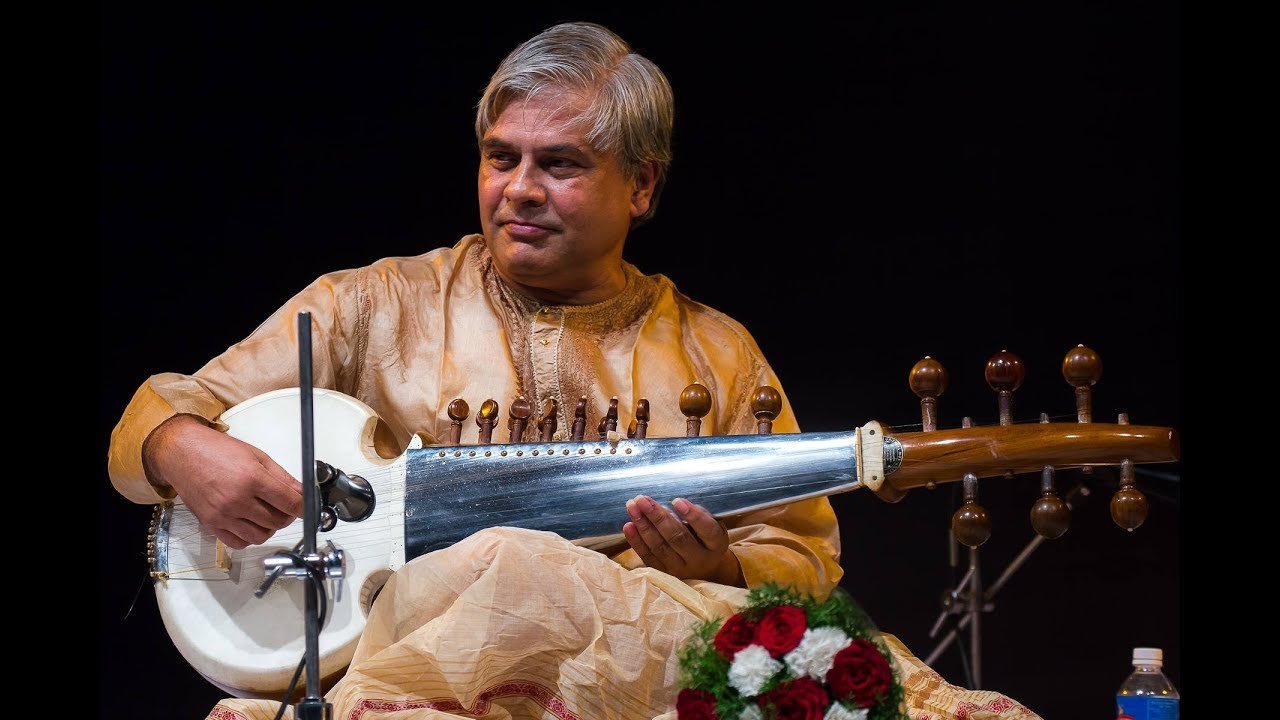Ek Shaam Deoghar Ke Naam, Sarod Recital
Pandit Biswajit Roy Chowdhury, (RKMV 1973)
The focus of the 41st Praktani Adda session was music, a subject that many alumni hold dear to their hearts. The Ramakrishna Mission Vidyapith in Deoghar offered a variety of extracurricular activities to give its pupils a comprehensive education.
Music held a special place among these activities.
Talented musicians and singers received the same treatment as celebrities and were placed on par with kids who excelled in academics or athletics. Holding on to music as a bridge strummed out of Biswajit’s Sarod, the 41st Praktani Adda was strolling back to the illuminated corridors of Vidyapith nestled deep within and reflecting on the good old days.
Biswajit’s music creates a unique and dynamic dialogue with the tradition of North Indian Art music. He is perhaps the only Sarod player who plays the coveted compositions from the Jaipur-Atrauli style on the Sarod.
The Sarod is a popular stringed musical instrument from India. It is known for its rich and resonant sound and has a history that can be traced back to the Mughal era. The instrument is believed to have evolved from the Afghan rabab, a lute-like instrument popular in Central Asia and Persia.
The Sarod has an extended, fretless fingerboard made of metal and is usually covered with goatskin. It has four main strings and several sympathetic strings that run along the neck of the instrument. The main strings are played with a plectrum made of coconut shell or ivory, while the sympathetic strings resonate with the sound of the main strings.
Despite its long history, the Sarod continues to be a popular and vital instrument in Indian music. Its unique sound and versatility make it a favorite among musicians and music lovers. In recent years, the Sarod has also been used in fusion music, with musicians combining it with Western instruments like the guitar and drums.
Biswajit is an acclaimed musician with a vast experience of around five decades. He has been trained under various masteros starting with his father, Ranajit Roy Chowdhury, Pandit Indraneel Bhattacharya, sarod maestro Ustad Amjad Ali Khan, Pandit Mallikarjun Mansur, Vidushi Sumati Mutatkar and Pandit Balasahab Poochwale.
